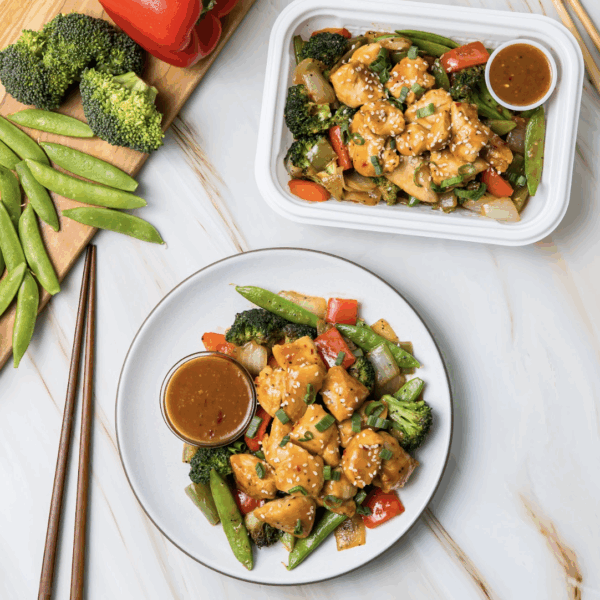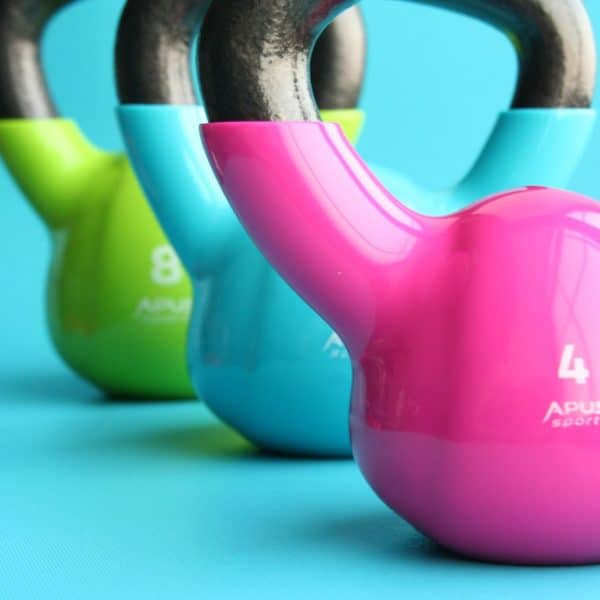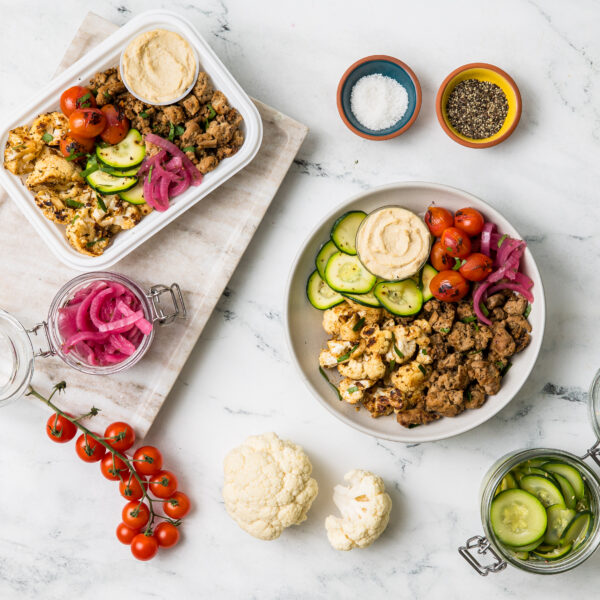Whether we’re talking about building a balanced plate or balancing your blood sugar, we know that we throw the term “healthy fat” around quite a bit on the blog. What does it mean? If you’re using oil for cooking, which one should you use? One oil that you’ll find in lots of packaged products, as well as in kitchens and restaurants across the country, is sunflower oil.
But is sunflower oil as healthy as it seems? Today, Sam is on the blog to give you all the details on cooking fats, including which ones are the healthiest for your own kitchen.
What is Sunflower Oil?
Sunflower oil is made by pressing sunflower seeds into a liquid form. It’s long been considered a healthy oil since it contains unsaturated fats that may be good for your heart. However, in recent years, saturated fats have been largely exonerated of any major role in heart disease, meaning a lot of the so-called heart-healthy oils we once relied on may not be so healthy after all.
There are a few different types of sunflower oil available today, and the type you’re using makes a difference in how healthy (or not-so-healthy) the oil is. What you’ll typically see on the shelf is ‘sunflower oil’ or ‘high-oleic sunflower oil.’
In short, always look for the sunflower oils that are marked: high-oleic sunflower oil. Sunflower oil is higher in linoleic, or omega-6, polyunsaturated fatty acids. Omega-6 fats tend to be pro-inflammatory in the body and may be unstable at a higher heat. High-oleic sunflower oil is predominantly made up of monounsaturated fats and much lower in polyunsaturated fat, meaning it’s a healthier option both before and after cooking.
Any potential benefits of using sunflower oil are associated with the high-oleic version since the monounsaturated fats that it contains may have an association with decreased risk of heart disease.
The Potential Downsides of Sunflower Oil
There are many more potential negative effects of sunflower oil. Since most forms of sunflower oil are high in linoleic acid or omega-6 fats, they have the potential to cause inflammation in the body. Your body does need some omega-6 fats to survive, but the standard American diet often involves a very high intake of omega-6 fats and hardly any consumption of omega-3 fats, leading to increased inflammation and the associated negative health effects (like a variety of chronic diseases).
Another issue with sunflower oil is its potential for oxidation, particularly when used for cooking. Research suggests that sunflower oil may release toxic compounds, called aldehydes when heated to temperatures of 180 degrees Fahrenheit.
Consider this: sunflower oil is often touted as having a high smoke point, which is the temperature at which an oil starts to smoke and degrade. But a high smoke point does not necessarily mean that oil is stable under that high heat.
Sunflower oil has been shown to be unstable at high heat, which means that it begins to break down and release aldehydes as cooking continues. Aldehydes can damage DNA and your cells (think of it as the oil oxidizing inside your body), contributing to high inflammation in the body and increased risk of conditions such as heart disease or Alzheimer’s. The longer you’re cooking at that heat, the more aldehydes that will be released.
Moral of the story? If you are going to use sunflower oil, cooking at low heat or using it cold is best.
Hot tip: If you’re still hard-pressed to use sunflower oil, try a sunflower oil that’s oleic acid-based. Of the different forms of sunflower oil, oleic acid is the most stable variety for cooking.

The Problem with Some Vegetable Oils
Note our use of the word “some”, not “all”. Not all vegetable oils are problematic! But for the curious, the most problematic varieties of vegetable oil include:
- soybean oil
- corn oil
- sunflower oil
- cottonseed oil
- canola oil, among others.
Since most processed vegetable oils are extracted from seeds, they often require extensive processing. (Just think about trying to extract fat from corn or soybeans!)
This processing may include high heat, chemicals, and toxic solvents. In addition to this heavy processing, there’s the issue of the high omega-6 content and oxidation process (as previously discussed above).
Oils You Can Use Instead?
The good news is that there are many healthy oils to choose from. The key is to choose oils that are lower in polyunsaturated fats. There are some vegetable oils that are great choices when cooking, including:
- extra virgin olive oil
- avocado oil
- macadamia nut oil
- coconut oil
These choices are all often cold-pressed, which requires less processing and a more beneficial fatty acid profile.
As an aside, when it comes to building your plate, there are other healthy fats to choose from as well, including olives, avocados, nuts & seeds, coconut, full-fat dairy, grass-fed meats, and fatty fish.
Other fantastic options include:
- sustainably-sourced palm oil
- grass-fed butter or ghee
- pasture-raised animal fats
Here at Snap, we stick to olive oil, extra virgin olive oil, and ghee, and use sesame oil as a finishing oil for our Asian-inspired dishes. We know the importance of healthy fats, and we take our role as your partner in health very seriously. You can check out our options here.





Leave a Reply
2 Comments
I have been diagnosed with high LDL, low HDL, high triglycerides and having plaque in one of my carotid arteries, knowing this, which oil should I be cooking with? Also, what’s on the label may not necessarily be what’s in the bottle, I have no idea which oils are legit and which ones aren’t.
Hi Sharon, thanks for visiting the blog! As mentioned in the blog, our favorite healthy oils are avocado oil, olive oil, and even coconut oil. If you aren’t sure which oils are used in a product, you can always read the ingredient statement on the nutrition label to know for sure. Hope that helps!